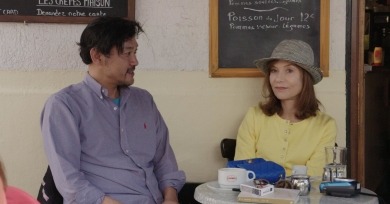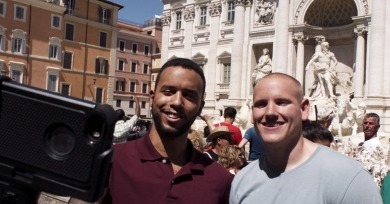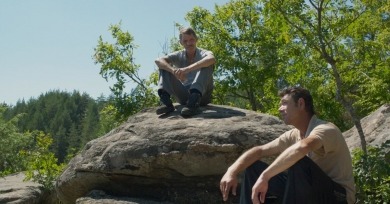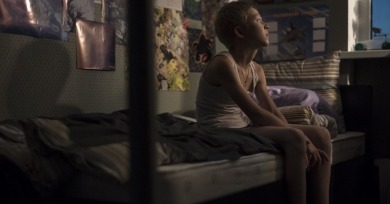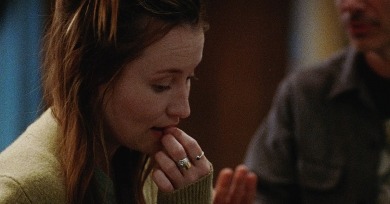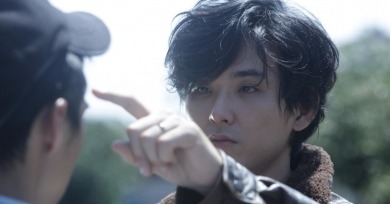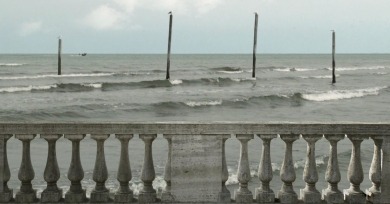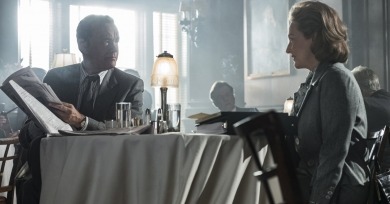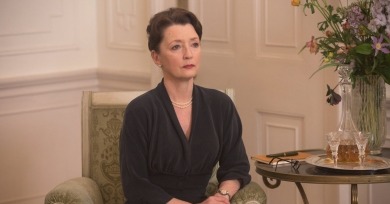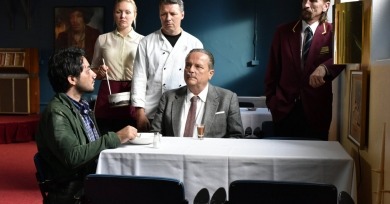Reviews
The film thrives on translation, communication, and perception. Like the screwball comedies of yore, it revolves around a romantic conflict that its protagonist does not fully comprehend, though here this situation is reduced from the fanciful to the quotidian.
Berlin 2018: Loznitsa is an assiduous practitioner of observational cinema. One may even argue that his nonfiction filmmaking is to the study of spaces charged with political memory what Frederick Wiseman is to the exploration of institutions.
The distance between the banality of life and the sublime of cinema seems practically unbridgeable. This sense that transcendence is elusive to us mere mortals is the explicit subject of the film.
The first thing you should know is that Western is not really a western. Valeska Grisebach draws upon genre iconography and mythos, but to take the comparison further requires wishful, willful thinking, an act of projection that the filmmaker cannily encourages and exploits.
This portrayal of an ugly divorce functions as a commentary on the dysfunctional post-Soviet, post-Communist Russia, where nothing holds value other than money and the desire to earn more of it.
In his five films, Perry has exclusively written irredeemably selfish characters, who opt to remain in their own comfort zones, yet he sustains a consistent empathy, never dismissing or torturing them. There is a Sisyphean desperation to their yearnings.
There is a formal adventurousness here typical of Kurosawa, who has seesawed between genres both throughout his career (horror, sci-fi, and dramas like Tokyo Sonata) and within individual films (Doppelganger transitions from a loss-of-identity thriller to a sort of satirical romance). The constant element is a sure-footed aesthetic precision.
In 24 Frames, the boundary that separates still photograph from motion picture proves to be beside the point, much as it is immaterial to the impact of the heady Kiarostami romance Certified Copy whether the central couple are long-term partners or total strangers.
Avoiding the sweeping grandiosity and visual tidiness of so many period pieces, Thomas brings a deeply tactile approach to her first solo feature, which is set in the mountains of 19th-century Brazil.
Tasked with the pivot film in a trilogy, Johnson chose the right time to reinvigorate the narrative with irreconcilable forces, doubts, and conflicts. Suspension is the best asset of a a middle chapter. And best in that it is truest.
The Post suggests the degree to which journalism often only exists as a direct result of the intervention of wealthy players, and that access to important stories is twinned with a discomfiting closeness between reporters and historical actors.
A tale of romantic obsession and fetishistic desire, Phantom Thread interrogates the need of a dysfunctional man to remake and control a woman, but then flips that somewhat tired script.
The sober, unsentimental approach to the interactions between Shaar and her women prevent Soufra from becoming a film that traffics in uplift. Soufra does not dwell on the delusion that the worth of an immigrant hinges on her productivity.
Throughout his career he has chronicled life on the margins to find beauty where others only see barren squalor. Rather than a rhetorical stance, his commitment to lost causes stems from a genuine contempt for conformism, while the anti-naturalism of his dramaturgy abstains from sentimentalism and emotional manipulation.
